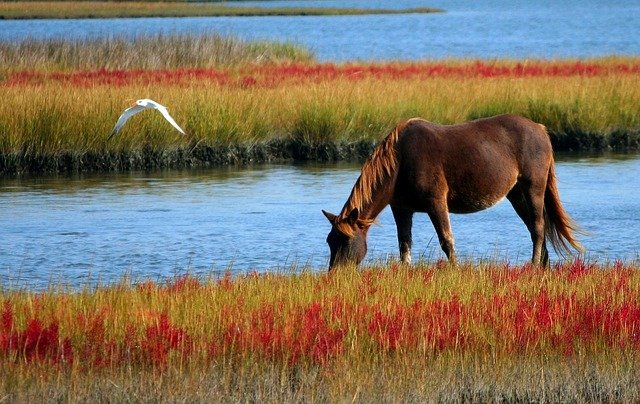
Proper Care of Horses
On October 24, 2020 by Walter PowellCaring for a horse requires a large investment of time and money and also an emotional commitment from the owner. Being large animals, horses require ample space to graze and exercise. Horses are also social, herd animals and need interaction with other horses or their human companions.
Feeding and Nutrition
Grazing on fresh grass is one of the most important parts of a horse’s diet. Hay may also be added as a supplement, but care must be taken to ensure that it is not moldy or dusty. Grains may be fed sparingly to help bolster nutritional needs as well as adding necessary calories.
Mineral blocks should be made available to provide crucial trace minerals, and clean, fresh water should always be accessible.
Exercise and Socialization
Horses require exercise to be healthy and happy. Investing in horse jump equipment will provide your horse with a physical challenge that will stimulate the body and mind. Even if your horse is kept in a stable, daily exercise is essential. Exercise areas should be carefully maintained to avoid hazards such as debris and holes that may cause injury to the horse.
Socialization and companionship are necessary for a horse’s mental well-being. Having a companion can help reduce boredom and anxiety and can make the horse feel safe. The ideal companion for a horse is another horse. However, even sheep and goats have been known to provide the necessary companionship.
Healthcare and Grooming
If you are going to invest in a horse, you will need access to a large-animal veterinarian. To keep your horse healthy, preventative care is the best option. Deworming and vaccinating are precautionary measures that may be taken to help prevent serious illnesses. Keeping the stables clean and providing clean, dry hay for sleeping will also help prevent disease and illness. In addition, the number of horses kept should be appropriate for the amount of land available.
Grooming is another key aspect of proper horse care. A daily grooming routine should include brushing the coat and hair, as well as inspecting the shoes. This is an opportunity to detect irregularities in the skin and hooves. Horses must be brushed before riding to remove dirt and debris that may become trapped under the saddle, causing severe skin irritations.
Owning a horse can be a richly rewarding experience, and with careful planning and preventative care measures, your horse will be a happy, healthy companion for many years.
Archives
- April 2024
- March 2024
- February 2024
- January 2024
- December 2023
- November 2023
- October 2023
- September 2023
- August 2023
- July 2023
- June 2023
- May 2023
- April 2023
- March 2023
- February 2023
- January 2023
- December 2022
- November 2022
- October 2022
- September 2022
- August 2022
- July 2022
- June 2022
- May 2022
- April 2022
- March 2022
- February 2022
- January 2022
- December 2021
- November 2021
- October 2021
- September 2021
- August 2021
- July 2021
- June 2021
- May 2021
- April 2021
- March 2021
- January 2021
- December 2020
- November 2020
- October 2020
- September 2020
- July 2020